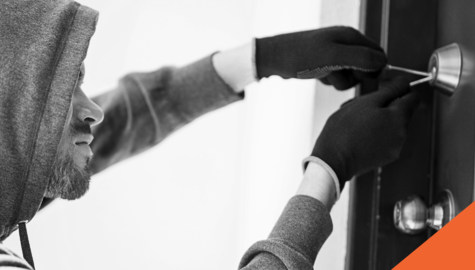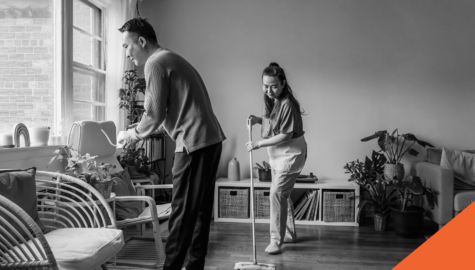What To Do If You're In An Accident On Vacation
Wednesday, 5 July 2023
Travelling can be an exciting and enriching experience, but unfortunately, accidents can happen anywhere, at any time. Whether you're vacationing domestically or abroad, having a pre-travel plan is essential to being prepared if the unexpected occurs.
Understanding what to do if you find yourself in an accident while travelling in a foreign country is vital to ensuring your safety, minimizing potential complications, and relieving undue stress.
Common Accidents Among Travelers
Slip and Falls
Slip and fall accidents are among the most common vacation mishaps. They can occur in various settings, such as hotel lobbies, restaurants, tourist attractions, or uneven street pavement. Wet floors, poorly maintained walkways, or inadequate lighting can contribute to these accidents.
Road Accidents
Whether you're renting a car, using public transportation, or relying on taxis and rideshares, road accidents can happen. Unfamiliar driving conditions, different traffic rules, and road hazards can increase the risk of collisions or accidents. It's essential to exercise caution, wear seatbelts, and adhere to local traffic laws.
Water-related Incidents
For many, going on vacation involves spending time by the water. Swimming, snorkelling, diving, and boat rides are all common examples of fun leisure activities that people seek out during their travels. However, water-related accidents, including drowning, injuries from water sports, or boat collisions, can occur due to factors like strong currents, lack of proper supervision, or inadequate safety measures. Prioritizing your safety and following professional guidelines and instructions is always recommended when participating in these activities.
Sporting and Adventure Activities
Participating in sports or adventure activities like hiking, skiing, zip-lining, or bungee jumping can provide thrilling experiences. However, accidents can happen due to lack of experience, inadequate equipment, or insufficient safety precautions. It's crucial to choose reputable operators, follow instructions, wear protective gear, and assess your own capabilities before engaging in such activities.
Theft and Pickpocketing
While not physical accidents, theft and pickpocketing are unfortunate incidents that can occur during vacations. Tourist-heavy areas are often targeted, and valuables like passports, wallets, or electronic devices can be stolen. Stay vigilant, keep your belongings secure, and consider using a money belt or keeping important documents in a hotel safe.
*Pro Tip: Contact Canada’s embassy or consulate in the country where the accident occurred. They can provide valuable assistance, guidance, and support during this challenging time. Inform them about the accident, provide relevant details, and follow their instructions.
What To Do If You're In A Car Accident While On Vacation
It comes as no surprise that motor vehicle collisions are one of the most commonly occurring accidents among travellers, accounting for up to 2% of Canada's gross national product. While vehicular crashes top the charts worldwide, they're not the only type of accident to be aware of; falls and drowning represent 6% and 9% of all accidents, while fire is responsible for up to 15% of incidences. There are many factors that contribute to these numbers; however, the top causes often include:
- Distracted driving
- Traffic and congestion
- Poor lighting and signage visibility
- Failure to follow posted warning signs
- Inadequate supervision
- Poor road conditions
- Intoxication
If you do get into an accident on vacation, knowing the next steps to take can make the process more smooth and save you from a headache down the road.
Seek Medical Attention
Following an accident, your first step should be to seek medical attention for yourself and your passengers. Even if everyone appears uninjured, getting checked by a doctor is crucial since many injuries don't present themselves immediately.
Collect Information
Collecting as much information as possible is an essential step as it helps the insurance claims process go smoothly and will protect you going forward. Whether you are the party at fault or not, the more detailed the information, the better. Be sure to gather:
- The names, phone numbers, and addresses of all parties involved, including the passengers and drivers.
- The driver's insurance name, phone number, and address.
- All license plate numbers from involved vehicles.
- The accident's time, date, and location.
- The make and model of all involved vehicles.
- Photos of the scene of the accident.
Report the accident to the police
In Canada, all major accidents are required by law to be reported to the police, or criminal charges can be filed. When you make your report, be sure to include all the information you collected, as it will help the police create a detailed accident report. In some cases, eyewitness reports could be needed to assist with the investigation, which the police will walk you through if necessary.
Exchange your insurance information
When an accident occurs, both drivers must exchange insurance information so they can file a claim with their carrier. Be sure to provide the following information:
- Your insurance company's name.
- Your policy number.
- Your insurance company's contact information.
Keep your own records
It's essential to keep your own records of everything happening after your accident, including expenses, medical appointments, and the insurance company's contact information. If the accident causes you to miss work, keep track of the days so you can include them in your insurance claim.
Notify your insurance company
You want to notify your insurance company as quickly as possible following your accident so they can begin an investigation. Be sure to provide them with all the information you collected in step two and inform them of any injuries obtained by you or your passengers.
File an insurance claim
Once you've contacted your insurance, you'll want to file a claim to help cover expenses, including medical bills or lost wages. The sooner you file your claim, the faster you will be compensated, so don't delay!
Government Vs. Private Insurance For a Travel Accident
Depending on where you live, you may have personal or governmental insurance, which can help cover medical expenses from an accident. For those residing in Canada, a universal health system covers the cost of healthcare-related care, but it is up to the individual to purchase their own vehicle and travel insurance.
For more information on what to do if you are injured or sick outside of Canada, click here.
Experiencing an accident while abroad can be distressing, but knowing what steps to take can help you navigate the situation effectively. Prioritize your safety, promptly notify the local authorities and your embassy, gather information, document the scene, and report the incident to your insurance company. Seek legal advice if necessary and maintain copies of all important documents. Remember, remaining calm, following proper procedures, and seeking assistance will go a long way in managing the aftermath of an accident while abroad.



